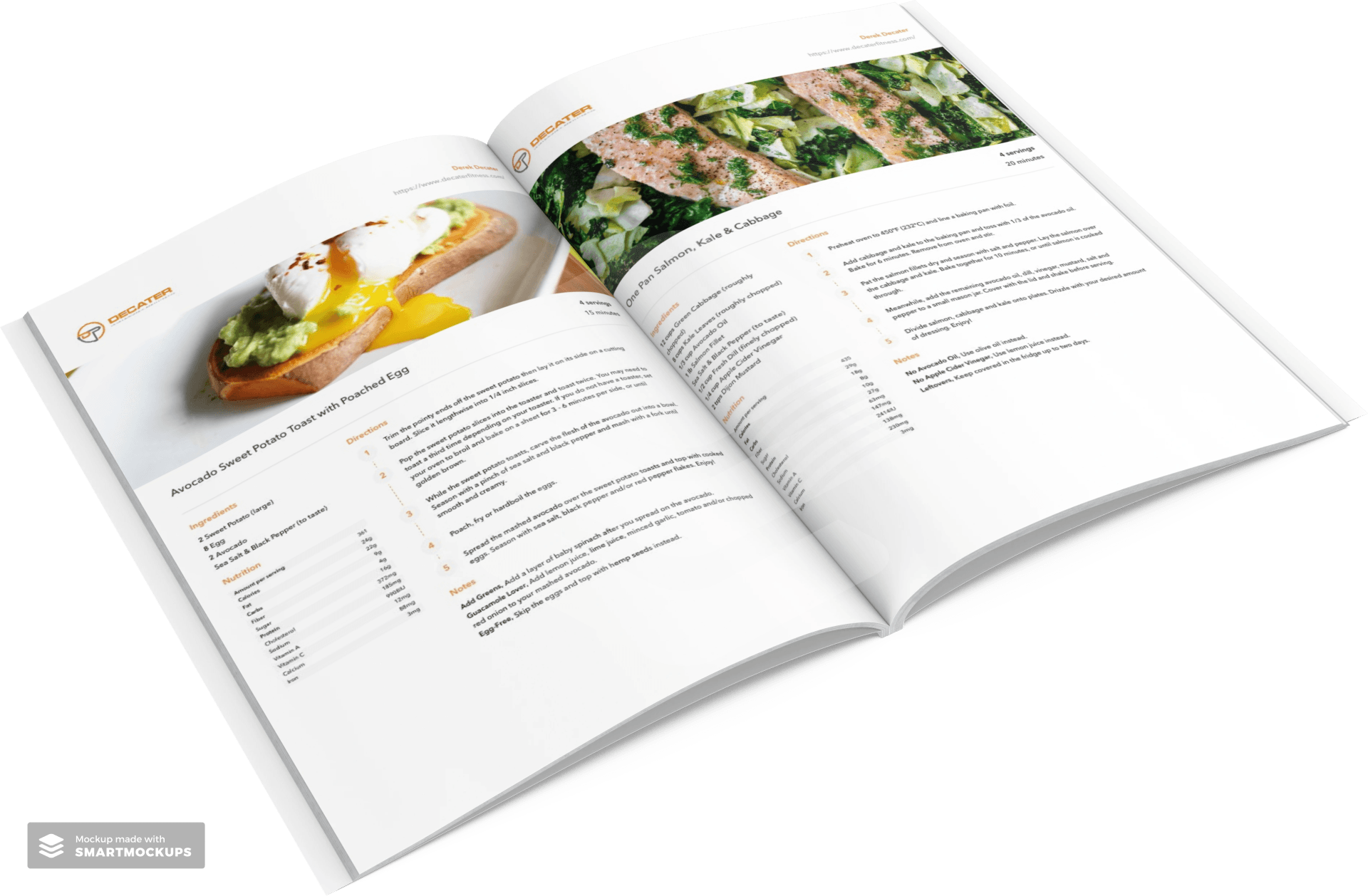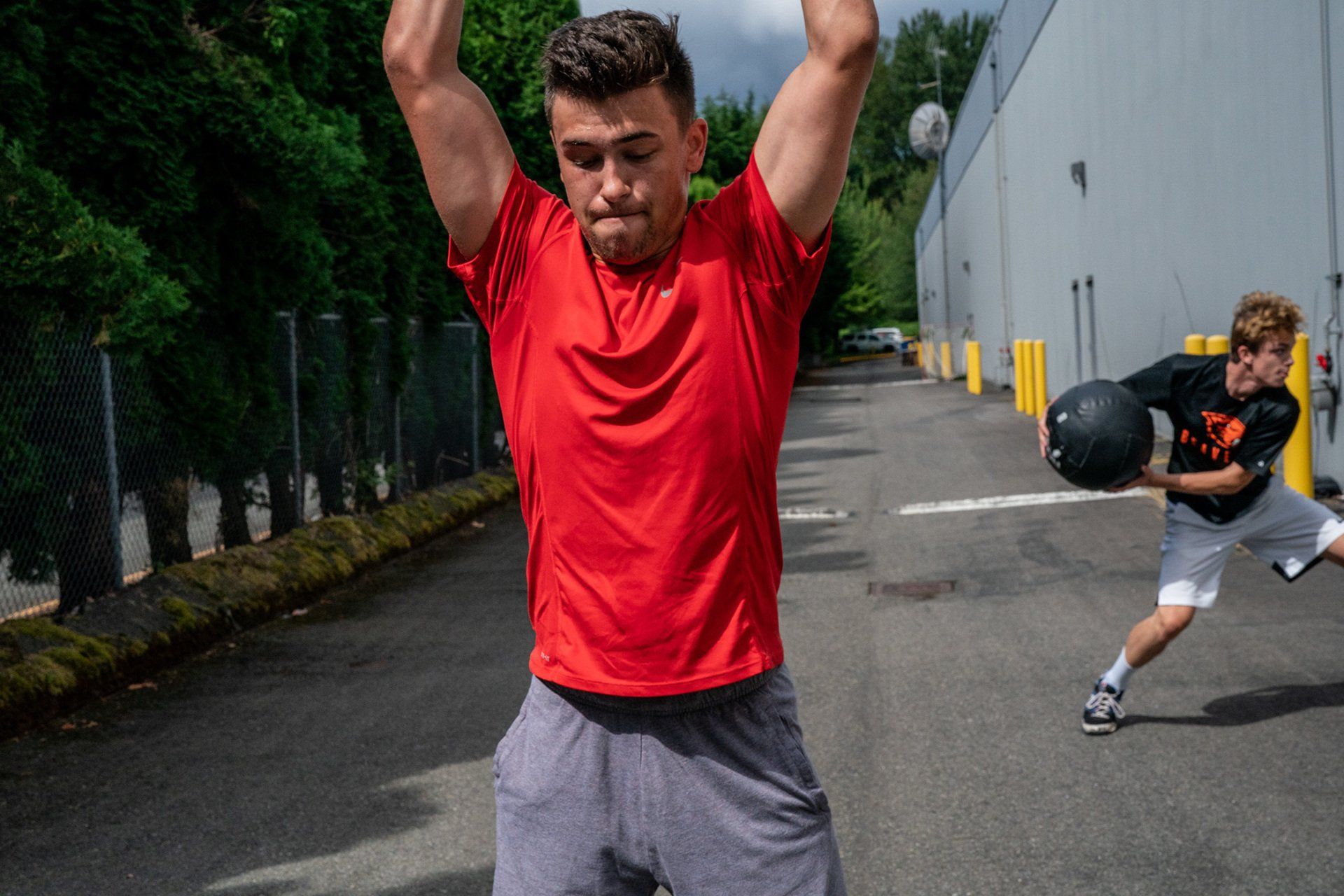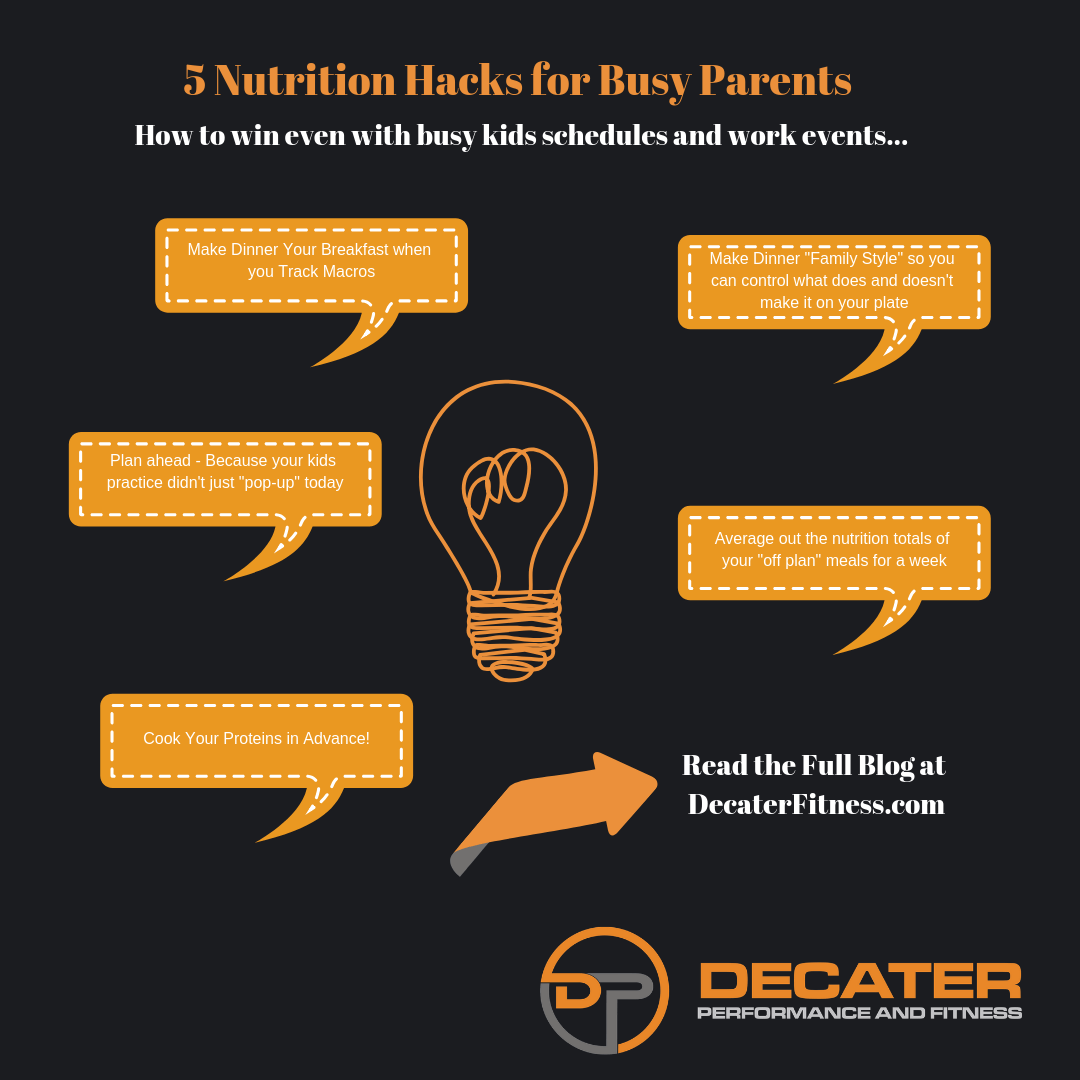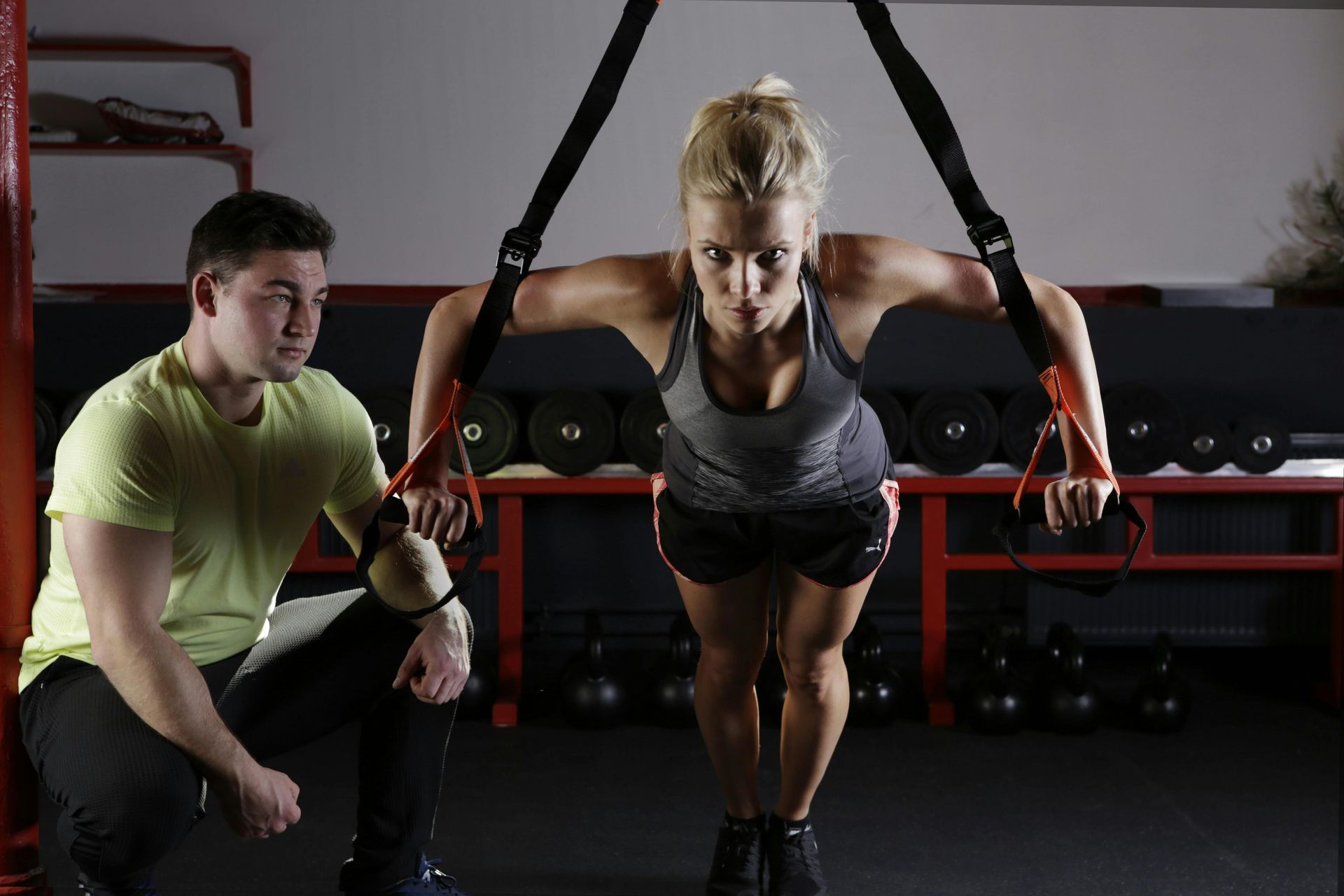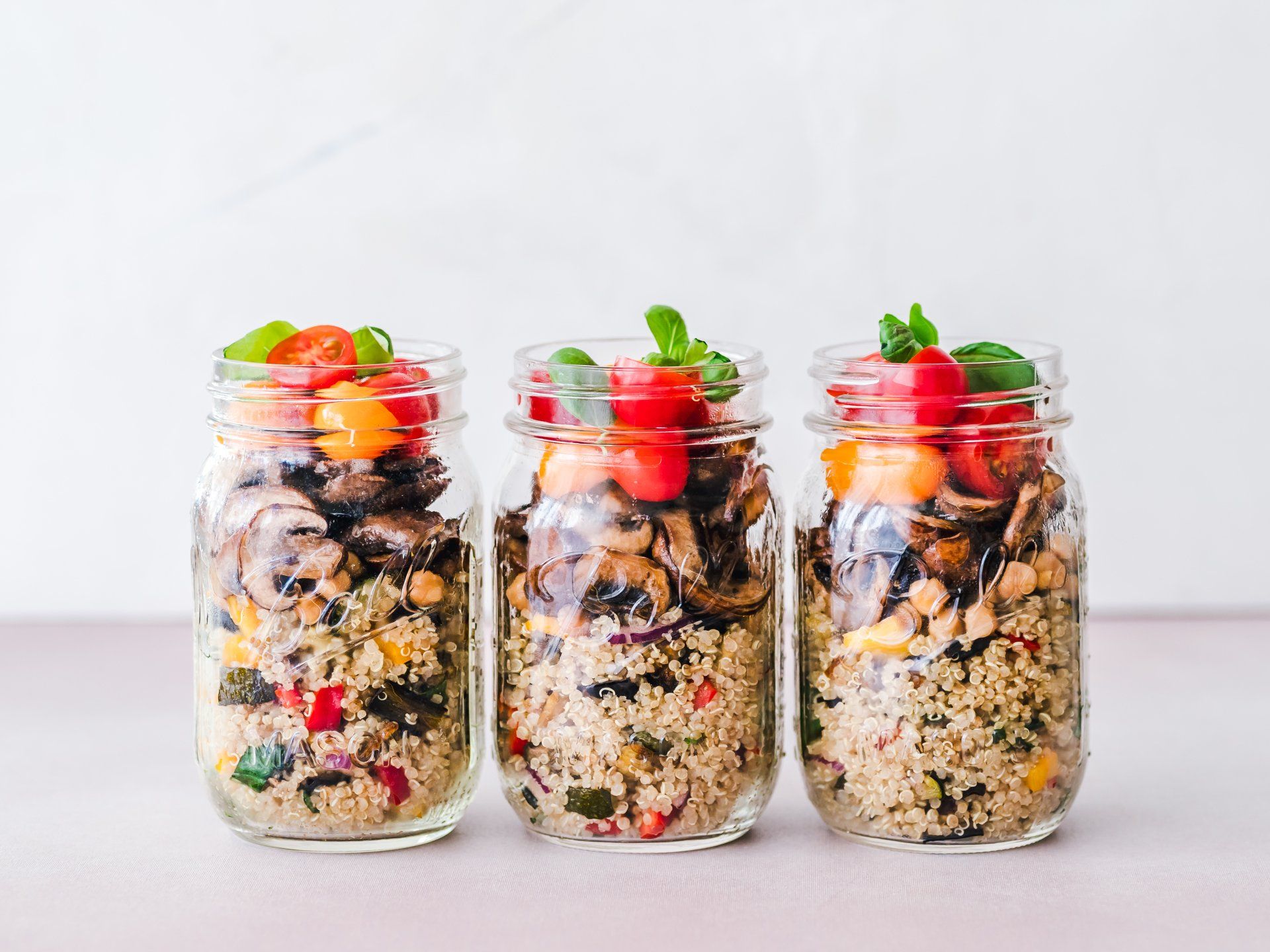5 Nutrition Hacks for Busy Parents
How to WIN even with kids schedules and work events...
Parents – The struggle is real. Nutrition, the gym, kids practices, work events, and more. How do you stay on track with your nutrition?
Don’t worry. I’ve got your back.
As a parent who is doing everything they can to incorporate a macro-based plan into your life I know some of the hurdles that come up.
Here are just a few that come up often…
1- You want to eat with the family and not have to be “on plan” during family dinners. This means you might be eating a little more than usual or maybe your food choices aren’t like they are for breakfast and lunch.
2- Your kids are in after school activities. Sports, music, clubs etc and there’s barely enough time to get everyone where they need to go let alone sit down to eat a healthy meal.
3- You’re not in charge of dinner – this could be due to work events or maybe a spouse that cooks the food.
4- You know what, things just get crazy! One day it's something and the next it's another.
These are just a few of the distractions that make tracking hard.
Here's How-To Hack a Busy Schedule
Hack #1
It’s the simplest and the one you’ve heard of but if you are like most you could sharpen your skills a bit.
Just plain ol' planning.
Look, your kids practice didn’t just appear on your schedule.
That work event wasn’t planned an hour ago.
This idea that things just “pop-up” is a story we tell ourselves that’s sounds better than “I just didn’t plan”
But its cool… life happens, we don’t always make the best decisions and the trick is to move on and find solutions.
The best way I’ve found for hitting nutrtion targets is to input tomorrows foods into a tracking app…. But do it the night before. Even if you don’t hit things perfectly this practice will at minimum get you to think about the day ahead so that things don’t “pop-up” and throw you a curve ball.
Hack #2
This isn’t really a strategy. This is more like a rule. You need to cook your proteins ahead of time.
That could be the night before.
That could be every time you do cook you cook some extra.
Or it could be a Sunday Protein Prep Ritual that sets you up for success the rest of the week.
Whatever options sounds easiest for you and yoru schedule is the option to run with.
Test it out. Re-evaluate how it worked. Adjust if needed.
Hack #3
Make Dinners “Family Style” where everything is essentially deconstructed. You and your family are still all sitting down together, eating together but now you have more control over what and how much of each food goes on your plate.
Proteins are on a plate.
Carbs are on a plate.
Sides are on a plate.
Condements are separate
Let the whole family dig in and create their perfect dinner.
You get too choose what fits your plan while still eating with the rest of the family.
Hack #4
Make dinner your breakfast.
Here’s what I mean.
Most people start tracking in the AM. It makes sense but it can lead to problems...
Everything is PERFECT. You are set up to have your best day ever when you come home and find out that dinner is not what you had planned, or work messed you up, or a kids practice got rescheduled and you had to find something fast and easy.
Your perfect day just went down hill fast.
Now your daily totals are all off and you feel bad because you “failed”
If Dinners throw you off try this instead…..
Start tracking with dinner.
No matter what dinner turns out to be you now have a breakfast and lunch the next day that you can adjust for it.
So if dinner is high on fats you adjust the next day.
Dinner low in protein… no problem… just add protein to breakfast and dinner.
Just by flipping HOW your track your day you’ve given yourself the chance to succeed on a weekly basis.
Because remember… the only thing that matters is consistency and hitting your numbers throughout the week, months, years etc.
So if tracking dinner first lets you be consistent then it’s a HUGE WIN for you.
Hack #5
If you want more consistency in your plan and the idea of having to adjust every day to account for slip-ups is just not your thing then try this….
Lets say you want breakfast and dinner to be pretty consistent.
You like your routine and it works for you for the most part.
Its dinners that throw you off or maybe it’s the daily lunch menu at work that gets you.
Easy solution….
Spend a week tracking the “bad meals” and total them up for the week.
Now you’ve got totals for calories, Proteins, Carbs and Fats for all of your meals that you don’t have as much control over.
OK Cool.
We can work with that.
If you know what the average totals are for each of those simply divide it by 7 days and subtract the total from your “daily” numbers.
With this approach at the end of the week you will still be close to the numbers you want without ever having to adjust anything.
Example if that was confusing…
We will just use protein as our macro nutrient.
Daily I want 180 grams.
Which means over 7 days I need 1,260 grams.
My dinners on average are way low. Over the 7 dinners tracked I ate a total of 175 grams of protein.
1,260(weekly target) – 175(weekly dinner average) = 1,085 left for all other meals in the week.
1,085 / 7 days = 155 grams per day that I’ll track and hit. This doesn’t include dinners.
At the end of the week I hit my 155/day goal and know that my dinners on average got me to me weekly total of 1,260.
The Wrap-up
Tracking food intake, if its new, can seem like a daunting task.
Who wants one more thing added to their already hectic life?
BUT - as the one and only Craig Ballantyne likes to say "Structure will give you freedom," and so you have to ask yourself this simple questions when weighing the pros and cons of adding tracking to your life...
"Is the pain of tracking greater than the pain of being stuck where I am?"
If your answer is "No" congratulations... you realize that what you are doing isn't working and it might be time for a change.
The next step is to start!
It's the first hurdle all of my online coaching clients have to overcome. But with this structure and a coach there to help navigate you'll find what works for you.
Give these "Hacks" a try and let me know how they work!

